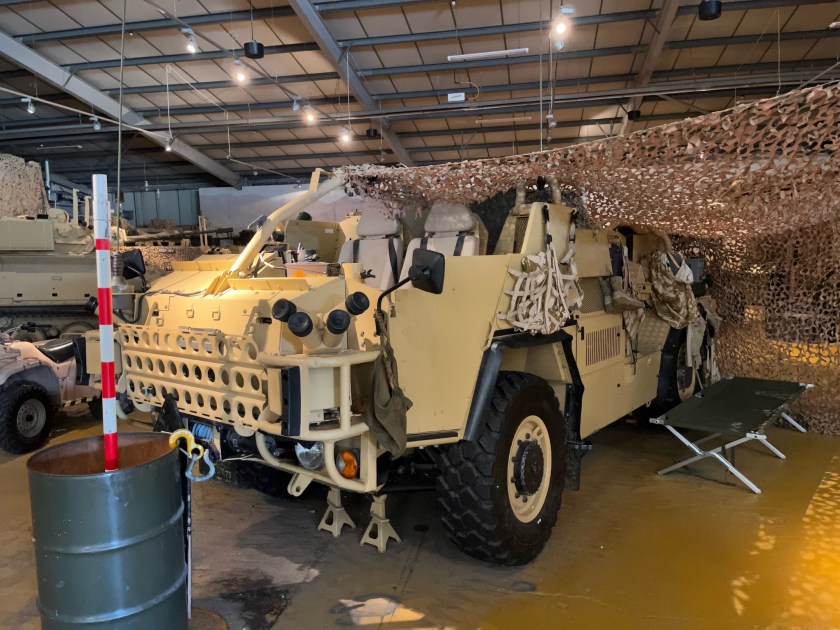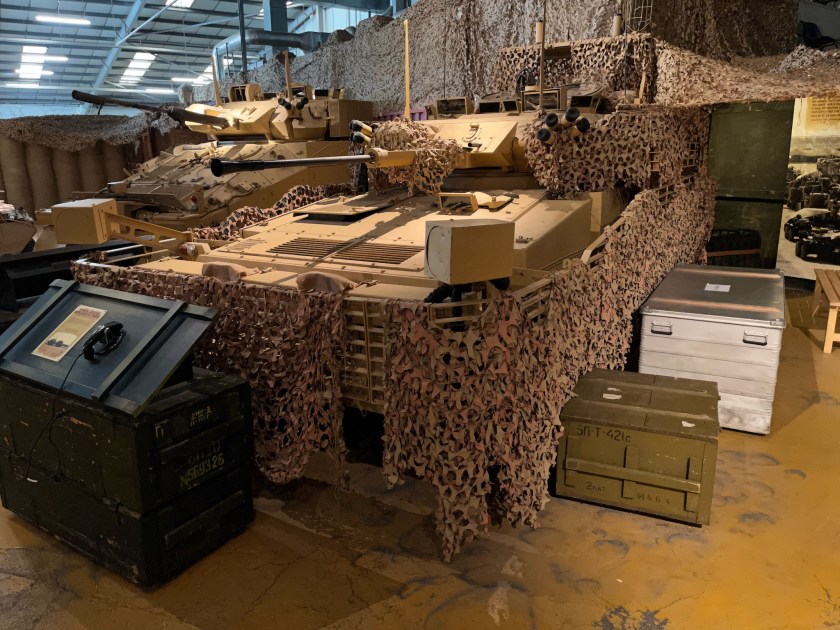The men of the Royal Armoured Corps have been involved in some of the fiercest fighting since World War Two. Now they tell their story. Explore a recreated Forward Operating Base, experience the living conditions of the modern soldier. See a range of new vehicles used in Afghanistan.
Battlegroup Afghanistan was a exhibition at the Tank Museum at Bovington.
The Jackal or MWMIK (from “Mobility Weapon-Mounted Installation Kit”) is a family of vehicles designed and developed by Supacat for use by the British Army and Royal Air Force Regiment.
The primary role of the vehicle in the British Army is deep battlespace reconnaissance, rapid assault and fire support – roles where mobility, endurance and manoeuvrability are important – and it has also been used for convoy protection.
Scimitar Armoured Reconnaissance Vehicle.
The FV107 Scimitar is a similar armoured reconnaissance vehicle (sometimes classed as a light tank) also used by the British Army. It was manufactured by Alvis in Coventry.
It was issued to Royal Armoured Corps armoured regiments in the reconnaissance role.
It is very similar to the FV101 Scorpion, but mounts a high velocity 30 mm L21 RARDEN cannon instead of a 76 mm gun.
This is a BvS 10 (known as the Viking All-Terrain Vehicle) was developed by Hagglunds Vehicle (now BAE Systems Hagglunds) for the UK Royal Marines.
Currenly on loan from the Royal Marines Armoured Support Group (ASG), the Tank Museum’s Viking exhibit is the second of the two original pre-production BvS 10 which were extensively trialled by the Royal Marines for 12 months from mid-2001. As well as fitting the bar armour, wire cutter and a Mark II Platt Mount protected weapons station (kindly supplied by the Royal Marines ASG), Tank Museum Workshop staff have modified aerials, added IR lights, stowage etc. and repainted and extensively upgraded the original pre-production BvS 10 to look like a Royal Marine ASG Viking Mk I in contemporary service in Afghanistan.
This Panther Command and Liaison Vehicle (CLV) is shown with the damage it incurred from an IED.
A total of 401 Panthers were delivered to the British armed forces by summer 2009. Panther CLVs were built during 2006-09 and replaced a range of vehicles that were reaching the end of their operational lives.









